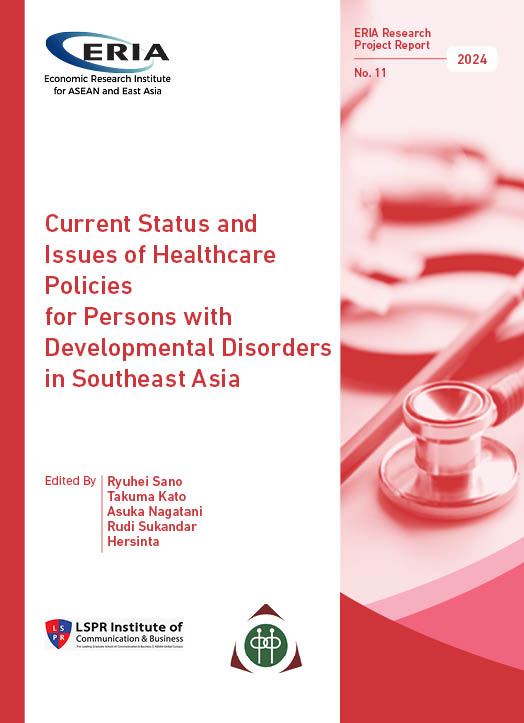Current Status and Issues of Healthcare Policies for Persons with Developmental Disorders in Southeast Asia

Print Article:
Persons with developmental disorders and their parents often encounter numerous and overwhelming challenges in caring for themselves, their children, and other family members. These challenges usually result in adverse effects on their lives, including a lower quality of life, isolation, and a lack of knowledge in care planning.
The availability of policies related to developmental disorders, such as Autism Spectrum Disorder (ASD), Attention Deficit Hyperactivity Disorder (ADHD), and Learning Disabilities (LD), is recent and limited in scope in the ASEAN region. This report provides an analysis of the situation related to developmental disorders in the ASEAN region, which is needed to obtain a comprehensive understanding of the status of this topic.
Chapters in this report discuss important issues from the perspective of persons with developmental disorders and their families, including limited access to health services and education in rural areas, difficulties entering the job market, and the need for social protection and extensive support, especially for those entering adulthood. Based on a comparative study of policies related to developmental disorders in ASEAN countries and Japan, we propose some recommendations, including building more robust collaboration between ASEAN countries and Japan in the field of developmental disorders and exploring new initiatives. These can include community life care through group homes, facilitating work transition, and developing policies focusing on identifying lifelong needs and expanding education access to support parents and caregivers in caring for their children with developmental disorders.




